Discover Foodie Pharmacology Podcast
Foodie Pharmacology Podcast

Foodie Pharmacology Podcast
Author: Co-Conspiracy Entertainment
Subscribed: 186Played: 3,710Subscribe
Share
© All rights reserved
Description
Have you ever wondered where your food comes from? Not just where it’s grown today, but where it originally popped up in the world? Have you ever bit into a delicious ripe fruit and wondered, hey – why is it this color? What’s responsible for this amazing flavor? Is this good for my health? Could it even be medicinal?
Foodie Pharmacology is a science podcast built for the food curious, the flavor connoisseurs, chefs, science geeks, plant lovers and adventurous taste experimenters out in the world! Join American ethnobotanist Dr. Cassandra Quave on this adventure through history, medicine, cuisine and molecules as we explore the amazing pharmacology of our foods.
Foodie Pharmacology is a science podcast built for the food curious, the flavor connoisseurs, chefs, science geeks, plant lovers and adventurous taste experimenters out in the world! Join American ethnobotanist Dr. Cassandra Quave on this adventure through history, medicine, cuisine and molecules as we explore the amazing pharmacology of our foods.
227 Episodes
Reverse
A vast network of fungi circles the globe—interwoven throughout the soil, coating surfaces above ground and even living inside of plants! There is an astonishing level of diversity among fungi, and this biodiversity is coupled with incredible chemical diversity. In this episode of Foodie Pharmacognosy, our guest is Dr. Nick Oberlies, an expert in the field of pharmacognosy who specializes in the study of fungal chemistry! He explains how he and his team find fungi growing inside plants and throughout the environment in the hunt for new molecules to treat cancer, infections, and more.
#Fungi #Pharmacognosy #NMR
Plants produce a fantastic array of metabolites to defend themselves, communicate with other organisms in their environment, and attract pollinators and seed dispersers; sometimes, these metabolites can also impact human health. Our guest this week is Dr. Nadja Cech, an expert in the field of mass spectrometry and natural products. She explains how she uses this exciting tool of science to study the medical potential of herbs like kratom, goldenseal, and more. We also discuss the importance of mentorship and support of diversity and inclusion in science.
#MassSpectrometry #Pharmacognosy #WomenInSTEM #Kratom
This week, we take a closer look at the plants and agricultural traditions of Oman, situated on the Arabian Peninsula. Our guest is Dr. Darach Lupton—an ethnobotanist who manages the collection and documentation of plants and seeds from across Oman in his role at the Oman Botanic Garden! He gives us a sneak peek behind the scenes of this incredible garden, which uniquely showcases native plants of the region in a variety of specialized habitats and biomes.
#Oman #Garden #MiddleEast
This week on the show, we’re going to dive into a really cool program dedicated to biocultural education and research in the Caribbean! Our guest is Dr. Sonia Peter. She is the Director of the Biocultural Education and Research program in Barbados and the founding director of Heritage Teas Barbados. We discuss ongoing initiatives dedicated to recapturing the biocultural heritage of the island and also sharing connections to traditional knowledge through a special line of heritage teas.
#Barbados #Biodiversity #Ethnobotany
“Gene bank” may sound like something out of a Sci-fi movie – but they are actually really important in the real world! Gene banks are a type of biological repository where genetic material is stored. When it comes to crops, gene banks hold the future of food, and include seeds, plant cuttings and more. Join Dr. Quave this week as she chats with Dr. Ren Wang, the Director General of the China National GeneBank, based in Shenzhen, China.
#GeneBank #China #Crops
I speak with Dr. Tinde van Andel, an ethnobotanist that studies the traditional uses of crops and medicinal plants from Africa to South America. She shares the incredible story of how enslaved African women hid special rice varieties and other crop seeds in their hair braids in their escape from plantations to the forest, where thriving Maroon communities were established and persist today in Suriname. Prof. van Andel explains how her team and collaborators used interdisciplinary tools from the examination of historic records, herbarium samples, ethnobotanical interviews and genomics approaches to unravel this fascinating history of this important African crop.
#Rice #Africa #Suriname
I speak with Dr. Robbie Hart, Director of the William L. Brown Center at Missouri Botanical Garden. Robbie is an ethnobotanist and explorer with expertise in agrobiodiversity of the Himalayas, where he studies high-elevation plant ecology, climate change, and ethnobotany. He shares some insights into his work on these topics and also explains how to make a delicious cup of yak butter tea, a local staple in the Himalayas!
#Himalayas #Yak #Ethnobotany
I speak with Dr. Bruce German, a leading expert on the science of breastmilk. You may have heard of the saying, “Breast is best” when discussing the topic of infant nutrition. But, you may be wondering, is that really true? And what are the nutritional needs of babies that enables them to grow and develop in that critical early period of life? Incredibly, there are certain components in breast milk that specifically feed the gut microbiome and promote health early in life. Tune in to learn more about the exciting scientific breakthroughs emerging in this field!
#Breastmilk #Nutrition #Microbiome
I speak with Amy Stewart, a best-selling author of both fiction and non-fiction works. You may recognize some of her popular nonfiction titles in the realm of botany, such as The Drunken Botanist, Wicked Plants and Flower Confidential. We dive into some wicked plants that fascinate us both that can be found in the wild, your backyard or sometimes at the bar!
#Botany #Cocktails #Poisons
How many of you love hot sauce? What makes chili peppers so alluring to our palates? Well, it has a lot to do with pain and how our bodies react to pain stimulants like capsaicin. Join me as I speak with Dr. David Julius – an expert on pain receptors – as they discuss how humans sense certain spices, and what this means in the search for new non-opiate pain therapies.
#Pain #Spicy #Peppers
Join me as I speak with leading agricultural scientist, Dr. Cary Fowler, about the importance of seed banking and conserving crop diversity. Ever heard of the “Doomsday Seed Vault”? Though it may sound like something out of a sci-fi thriller – this important gene bank where millions of seeds are stored in a tunnel carved into the arctic ice – is 100% real. Tune in to this episode of Foodie Pharmacology to learn why saving seeds is key to the future of global food production in a changing climate.
#SeedBank #Crops #Conservation
I speak with award-winning author, Daniel Stone, about his book on the life and adventures of David Fairchild: The Food Explorer. If you enjoy delicious foods like avocados and the Meyer lemon, you have Fairchild and his team members to thank for bringing these crops into cultivation in the US! Daniel’s book is an edge-of-your-seat historic account of this work that reads like an adventure novel! Tune in to this episode of Foodie Pharmacology to learn more about this fascinating read!
#Explorer #Crops #Agriculture
I speak with Mark Blumenthal about his work on the science and safety of botanicals. Mark is the founder and executive director of the American Botanical Council, which is a leading, independent, research and educational nonprofit organization dedicated to disseminating accurate, reliable, and responsible information on herbs and medicinal plants. The topics of sustainability, problems with adulteration and safety of herbs, and how to learn more about the healing power of plants are all covered in this episode of the Foodie Pharmacology podcast.
#Herbalism #DietarySupplements #HerbalMedicine
I speak with ethnobotanist Dr. Bruce Hoffman about his work with the indigenous people of Suriname! Bruce discusses his work with the Amazon Conservation Team and shares what life is like in the Amazon! He explains how the ACT works with local Trio and Saramaccan communities to establish stingless bee hives as a source of local income for this medicinal forest honey. We also discuss what to do if you encounter a group of peccaries in the forest… (here’s a hint) climb a tree… FAST!
#Amazon #StinglessBees #Rainforest
I speak with award-winning author Mark Kurlansky about his latest book, Salmon! to take a closer look at one of nature's most remarkable and inspiring animals: salmon! Salmon have long history of being sought out by both commercial and sports fishing all over the Northern Atlantic and Pacific. Incredibly, these fish can undergo major changes in their body to survive both in fresh and salt water during different phases of their life cycle! Not many fish can do that! Amazingly, they travel thousands of miles in the ocean to return to the exact river and location of their birth. Yet, salmon are threatened by everything from deforestation, to climate change, to dams. If the salmon can survive, then just maybe there is hope for the planet.
#Salmon #Water #Fisheries
I dive into Ayurvedic medicine with Dr. Bhaswati Bhattacharya (author, Everyday Ayurveda). Dr. Bhattacharya is a Harvard-educated, licensed, board-certified holistic physician trained in family medicine and preventive medicine. She’s also a published scientist trained in pharmacology, neuroscience and Ayurveda, an awarded educator, and a best-selling author.
Ayurvedic medicine is one of the oldest systems of medicines known to mankind. A focus in the healing process is on cleansing the body and re-establishing harmony and balance in the body. In addition to being a stand-alone system of medicine, it is also used in integrative health practices. We explore what Ayurveda is all about and also how diet factors into health and healing in this system of medicine.
#Ayurveda #India #HealthyDiet
With the instability of the restaurant and food service sector in the midst of COVID - Never has there been a more important time for an organization like this to support food service workers. In this episode, I speak with Bryan Schroeder of The Giving Kitchen ,a nonprofit organization that offers stability to the food service community in Georgia. They fulfill that promise through a vision of a food service community where crisis is met with compassion and care and where self-care is valued above all else. Giving Kitchen provides emergency assistance to food service workers through financial support and a network of community resources.
#FoodService #Nonprofit #Atlanta
I speak with Kathleen Finlay, President of Glynwood, a leader in the regenerative agriculture movement. Kathleen has also been instrumental in organizing women who work for environmental progress. The Glynwood Center for Regional Food and Farming is a non-profit organization serving food and farming changemakers from New York’s Hudson Valley and beyond. They advance local food production in the region, as well as educate a national audience about efforts to regionalize food and agriculture. Guided by the highest standards of ecosystem, soil, animal and community well-being, they promote regenerative agriculture in service of our natural environment, local economies and human health.
#Farming #HudsonValley #Agriculture
East Africa houses over half of the global HIV cases, and almost 5% of the population of Tanzania has HIV. Yet, only about half of the people with HIV consistently take anti-retroviral medication to treat it. Asili Research Alliance was born out of a calling to change these dire statistics. I speak with Jennifer Woltz of Asili about their innovative program working with local healers to supply a plant-based, locally sourced and produced medication that has known anti-HIV activity. Over 2,000 people have benefited from this treatment, either as a supplement to antiretroviral therapy (ART) or by itself when they are unable to obtain ART. The treatment is used to supplement ART or when ART is not an option (due to cost or scarcity). Their goal is to enable people living with HIV to regain their health in order to keep working and taking care of their families.
#HIV #Africa #TraditionalMedicine
Tawaw: “Come in, you’re welcome. There’s room.” In this episode, I chat with Chef Shane Chartrand and food writer Jennifer Cockrall-King about their newly released book, Tawaw: Progressive Indigenous Cuisine, which is part cookbook, part exploration of ingredients, and part journal. We discuss how Shane transforms traditional indigenous ingredients like wild game and berries into some delicious works of art.
#Indigenous #Cuisine #Cookbook


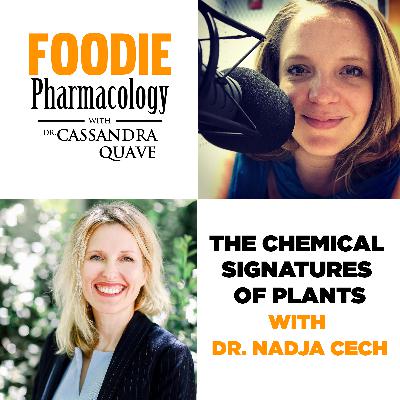
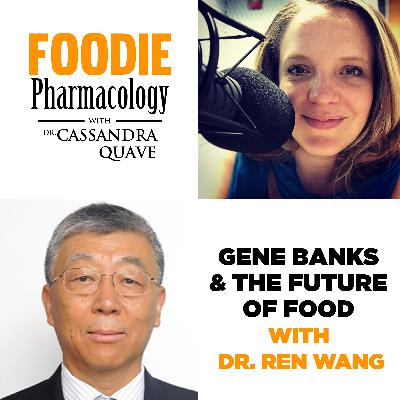

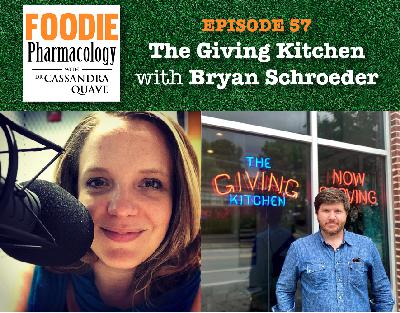
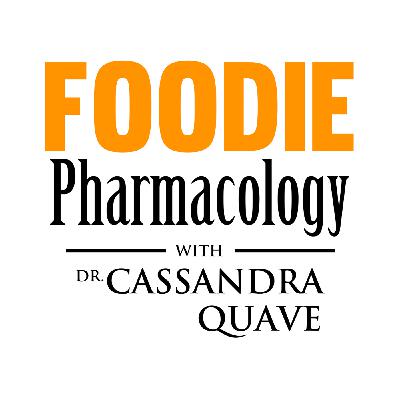
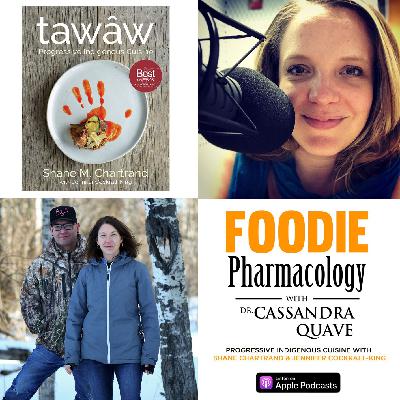



the use of ketogenic diets in improving mental and brain health. the science behind ketosis, mitochondrial function, and the role of diet in managing serious mental health conditions like bipolar disorder, schizophrenia, and more. The episode provides a comprehensive overview of how dietary changes can play a pivotal role in brain health and overall wellness. کیتو دایت و تاثیرش روی بیماریهای روانی ،و عقلی .مثل اختلال دوقطبی و اسکيزوفرني و .....
Hello, My husband and I really enjoy your podcast. (He has taken up eating fermented manioc with turmeric and pepper for weekend breakfasts!) But I wanted to mention something else that I thought of while listening to this latest episode about children's lack of exposure to adult food. I heard on another podcast, Science Vs., that the peanut allergy problem in the U.S. may be due to children not eating peanuts at a young age. One doctor who sounded the alarm about peanut allergies years ago has changed his mind and says it is the lack of exposure that seems to be the problem, because of the way the immune system responds. They found that there was little problem with peanut allergy in Israel, and they think it's because all the kids eat something called Peanut Puffs.
They produce Cachaça in Brazil not Aguardente. Aguardente is produced in Portugal from grapes.